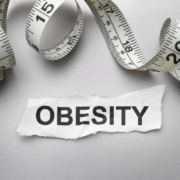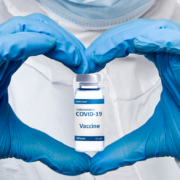The 340B drug discount program should be helping patients in need, not boosting pharmacy chain profits
By Sally Greenberg, Chief Executive Officer, National Consumers League
The federal 340B drug discount program is a worthy and critical program. Created by Congress in 1992, it mandates that pharmaceutical manufacturers participating in the Medicaid program must offer prescription medicines at discounted rates to community health centers and safety-net hospitals serving low-income and uninsured patients. Over the years, this program has given vulnerable patients access to the drugs they need and freed up resources for the qualified facilities to offer more health care services to indigent communities.
Over the past decade or so, however, this valuable program has been increasingly corporatized by for profit entities known to increase costs for consumers including middlemen like pharmacy benefit managers and pharmacy chains. Too many of the dollars circulating through the 340B program are benefiting the well-off and for-profit corporations, instead of consumers with significant health and financial needs. News stories have shined a spotlight on big health systems using the program to bolster profits, while hallowing out critical resources in underserved areas. However, more attention needs to be given to the billions of 340B dollars going to major pharmacy chains like CVS, Walgreens, Walmart and Rite-Aid that are not benefiting the patients this program is intended to serve. Increasingly, however, policymakers at the federal and state level are suggesting bailing out these for-profit entities under the guides of “contract pharmacy” legislation.
Here’s the problem: In 2010, the federal government issued guidelines allowing 340B-eligible health providers to contract with for-profit retail pharmacies to dispense medications, with virtually no rules or safeguards. Since that time, the number of pharmacies participating in the 340B program has grown from 789 in 2009 to over 25,000 today. If this meant more access to affordable drugs for consumer, that would be one thing, but this has not been the case. As contract pharmacies have increased, so too has consumer challenges affording their medicines, nearly in parallel. For example:
- Even though 340B contract pharmacies are receiving drugs at discounted prices, there is no evidence they are passing those savings onto consumers. One analysis from the respected IQVIA firm found that 340B discounts were shared with consumers in only 1.5 percent of eligible pharmacy claims.
- Although the 340B program is intended to benefit underserved, vulnerable communities with high proportions of poor and uninsured patients, hospitals in the program are contracting with pharmacies that are not, in fact, in areas afflicted with poverty and a scarcity of health care services.
- The vast majority of 340B contract pharmacy arrangements are with the aforementioned big national chains like CVS and Walgreens, which are enjoying enormous profits as a result of their participation in the drug discount program. Contract pharmacies collected an estimated $13 billion in gross profits in 2018, with a 72% profit margin on 340B drugs (because they are getting those drugs at a steep discount, which they don’t share with consumers). Needless to say, fattening corporate pharmacy profits should not be this program’s mission.
Contract pharmacy abuse of the 340B program has not gone unnoticed by policymakers in Washington. In January 2024, leaders in the U.S. Senate questioned CVS Health and Walgreens as part of as part of an ongoing investigation into how health care entities use and generate revenue from the 340B Drug Pricing Program. The Government Accountability Office (GAO) and the Department of Health and Human Service Office of the Inspector General (OIG), also highlighted issues with the program’s integrity as it relates to contract pharmacy use. 340B is in desperate need of transparency and oversight, not unfettered expansion.
Yet that is exactly what is happening in some U.S. states. This matter is taking on a greater urgency now as several states are contemplating legislation that doubles down on the problem instead of fixing it. Consumers would be shocked to learn their state representatives are ushering through changes that would further solidify the profitable role these large corporate contract pharmacies are playing in the abused 340B program. Policymakers at the state and federal level need to address a fundamental question – where do 340B savings go? And when the answer is to corporate pharmacy giants – not patients – it’s time to reconsider ill-conceived policies giving contract pharmacies even more access to 340B drug discounts.
###
About the National Consumers League (NCL)
The National Consumers League, founded in 1899, is America’s pioneer consumer organization. Our mission is to protect and promote social and economic justice for consumers and workers in the United States and abroad. For more information, visit nclnet.org.


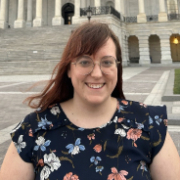
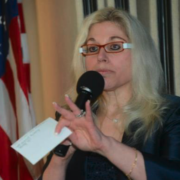
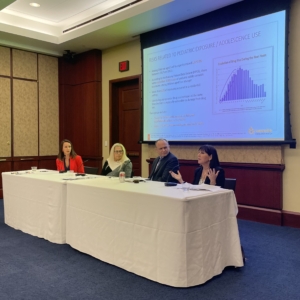 Cannabis Consumer Watch recently hosted a briefing on Capitol Hill to educate policymakers and staff on the public health risks that exist in the current cannabis marketplace, and to offer policy solutions that would help protect consumer safety and encourage innovation for patients. The briefing was moderated by the Collaborative for Cannabinoid Science and Safety’s Libby Baney, and the panel of experts included:
Cannabis Consumer Watch recently hosted a briefing on Capitol Hill to educate policymakers and staff on the public health risks that exist in the current cannabis marketplace, and to offer policy solutions that would help protect consumer safety and encourage innovation for patients. The briefing was moderated by the Collaborative for Cannabinoid Science and Safety’s Libby Baney, and the panel of experts included: